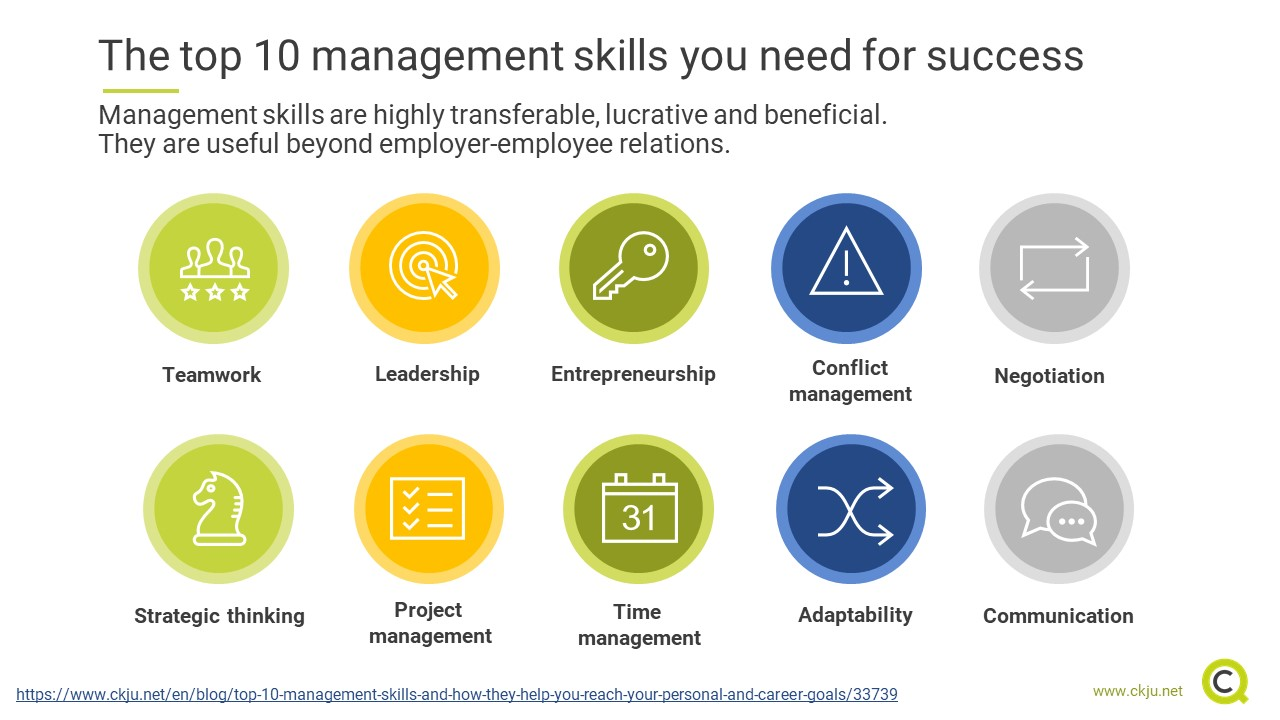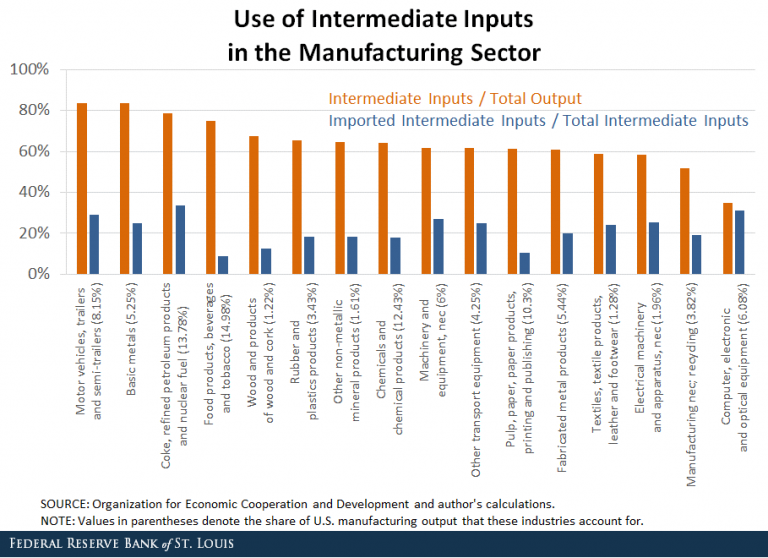
Effective Management Skills: Key Predictors Revealed
Effective management skills are essential for driving organizational success, yet finding leaders who embody these skills is a daunting challenge. The qualities of a good manager extend beyond mere experience; they encompass crucial traits such as strong communication, analytical thinking, and the ability to create a supportive environment for team members. Recent studies highlight the importance of assessing leadership selection based on capabilities rather than personality traits, with predictors of managerial performance aligning more closely with cognitive skills and effective decision-making. Understanding the traits of successful leaders allows organizations to advance their selection processes, ensuring they choose managers who are equipped to navigate complex operational landscapes. By focusing on evidence-based strategies for predicting manager effectiveness, companies can enhance their leadership frameworks and foster a more productive workplace.
The realm of leadership is often characterized by varying approaches and methodologies, yet the skill set needed for effective oversight remains relatively constant. Understanding what it takes to excel as a leader involves recognizing alternative terms such as managerial competencies and leadership proficiency, highlighting the multifaceted nature of successful management. In a competitive environment, organizations must prioritize characteristics that define managerial high performance, such as strategic thinking and emotional intelligence, over traditional markers like tenure or demographic factors. By evaluating potential leaders through a lens that blends these foundational principles, businesses can refine their approach to leadership development. This proactive attitude not only identifies capable managers but also ultimately cultivates a workforce poised to tackle contemporary challenges.
The Qualities of a Good Manager
To become an effective manager, it is essential to embody a range of qualities that foster a productive work environment. Among these qualities, interpersonal skills—such as empathy, active listening, and the ability to provide constructive feedback—are crucial. Good managers need to create a sense of psychological safety, which allows employees to feel secure in voicing their ideas and concerns without fear of negative repercussions. Furthermore, strong communication skills are vital, as they enable managers to articulate expectations clearly and motivate their teams effectively toward shared goals.
In addition to interpersonal skills, analytical abilities are equally important. A good manager must be able to assess situations, analyze data, and make informed decisions quickly. They should also possess a strategic vision that aligns with the overall goals of the organization. This combination of skills not only enhances individual managerial performance but also contributes to the long-term success of the organization as a whole.
Effective Management Skills Predict Managerial Success
According to recent research, effective management skills are critical indicators of a manager’s success. The ability to think critically and make decisions under pressure distinguishes successful managers from their peers. Organizations that focus on identifying these skills through rigorous evaluation methodologies—rather than relying on subjective traits like personality—tend to see improved managerial performance. This scientific approach helps in pinpointing those who can effectively lead teams and drive results.
Furthermore, a manager’s economic-decision-making skills play a pivotal role in resource allocation and team success. Managers who can efficiently distribute resources, delegate tasks based on team strengths, and motivate employees effectively are more likely to achieve desired outcomes. By emphasizing these effective management skills during the hiring and promotion process, organizations can enhance overall productivity and foster a culture of excellence.
Why Choosing the Right Manager Matters
The implications of selecting the right managers are profound for organizations. Effective managers not only steer teams toward achieving their objectives but also influence the workplace culture significantly. A manager’s ability to inspire and guide employees can lead to enhanced job satisfaction and employee retention, which are essential for organizational stability. In a rapidly changing business environment, having strong leadership at every level becomes a crucial competitive advantage.
Moreover, misguided selection practices, such as prioritizing age or personality over proven decision-making capabilities, can result in costly missteps. Organizations that embrace a more analytical approach to leadership selection can mitigate such risks. By focusing on the qualities that predict managerial effectiveness—such as intelligence and resource management skills—companies can create a robust leadership pipeline that will support long-term strategic goals.
The Role of Leadership Selection in Managerial Performance
Leadership selection is an essential facet of organizational success, as it directly influences managerial performance and team dynamics. The traditional methods for selecting managers often fail to account for crucial indicators of success, such as decision-making abilities and practical experience in managing diverse teams. Instead, companies should prioritize leadership selection processes that incorporate assessments of relevant skills rather than subjective traits. This reform in how leaders are chosen can lead to discovering hidden talents who excel under rigorous evaluation.
Implementing a structured selection process that involves analytical evaluations can enhance the likelihood of appointing proficient managers. Organizations can employ evaluations that simulate real-world leadership scenarios, thereby capturing the essence of what constitutes effective management. By refining leadership selection methods, organizations not only identify competent managers but also lay the groundwork for organizational growth and efficiency.
Traits of Successful Leaders and Predicting Manager Effectiveness
The traits of successful leaders extend far beyond traditional management skills, incorporating adaptability, resilience, and strong ethical values. These qualities enable managers to navigate challenges and lead their teams through uncertainty. Furthermore, the ability to foster inclusivity and collaboration among team members is increasingly seen as a hallmark of effective leadership. Understanding how these traits correlate with managerial effectiveness is essential for organizations looking to build strong leadership frameworks.
Predicting manager effectiveness requires a nuanced approach. Organizations need to utilize assessments that measure both soft and hard skills. This holistic evaluation allows businesses to identify leaders who not only excel in strategic thinking but also possess interpersonal skills critical for team cohesion. By focusing on these traits, companies can select managers who are equipped to inspire their teams, fostering a productive and innovative workplace.
The Impact of Psychological Safety on Management
Psychological safety has emerged as a vital component of effective management. Managers who create an environment where employees feel safe to express their ideas and engage in open dialogue contribute significantly to team performance. When employees are assured that their input is valued and that they can share concerns without retaliation, they are more likely to collaborate and innovate. This fosters a culture of trust that is essential for long-term success and engagement.
A manager’s role in cultivating psychological safety cannot be understated. Effective feedback mechanisms and transparent communication strategies are fundamental to developing this environment. Managers who are adept at recognizing and addressing individual and team dynamics play a critical role in establishing a workplace where everyone feels empowered to contribute their best.
The Necessity for Continuous Improvement in Management
In today’s dynamic business landscape, the need for continuous improvement in management practices is paramount. Organizations must be willing to evolve their managerial approaches, incorporating new findings and methodologies from leadership studies. Regular training and development programs allow managers to refine their skills, embrace changing paradigms, and better support their teams. Continuous learning nurtures adaptability, enabling managers to respond effectively to shifting organizational needs.
Furthermore, fostering an organizational culture that promotes feedback and personal development encourages managers to seek out improvement actively. By implementing mechanisms for self-assessment and peer reviews, organizations can cultivate a mindset geared toward growth and adaptability. This commitment to continuous improvement reinforces the capabilities of managers, ultimately enhancing employee performance and organizational effectiveness.
Strategic Vision: The Keystone of Successful Management
A strong strategic vision is crucial for effective management, guiding teams toward achieving their goals efficiently. Managers with a clear vision can inspire their team members, aligning individual efforts with organizational objectives. This strategic alignment is fundamental in ensuring that all team members understand their roles in contributing to the bigger picture, thereby enhancing engagement and motivation.
Moreover, managers equipped with a strategic vision are better prepared to respond to changing market conditions. They can pivot strategies as necessary, ensuring that their teams remain focused on core objectives even amidst uncertainty. The ability to communicate this vision effectively not only fosters a sense of purpose but also instills confidence in team capabilities, leading to improved overall performance.
Utilizing Data-Driven Approaches to Identify Good Managers
The reliance on data-driven methodologies to identify good managers can revolutionize standard recruitment practices. By employing assessments that measure critical skills such as decision-making and problem-solving capabilities, organizations can make more informed decisions regarding managerial appointments. This approach minimizes biases and allows for a more objective assessment of potential candidates, focusing on their true managerial competencies.
Furthermore, organizations that utilize advanced data analytics to track manager performance over time can continually refine their selection processes. Analyzing performance metrics against the qualities of successful managers provides valuable insights into what makes a leader effective. By leveraging these data-driven insights, companies can more effectively develop their leadership pipelines and adapt to the evolving demands of the marketplace.
Frequently Asked Questions
What are the key effective management skills that predict managerial performance?
Effective management skills crucially include the ability to foster psychological safety, excellent communication, and analytical reasoning. According to research, these skills allow managers to create conducive environments for team feedback, reassess organizational strategies, and relate well to diverse team members.
What qualities of a good manager are essential for leadership selection?
Qualities such as interpersonal skills, strategic vision, and the ability to motivate and organize teams are vital for effective leadership selection. Successful leaders exhibit a harmonious blend of these traits, enabling them to guide their teams effectively towards achieving organizational goals.
How do the traits of successful leaders impact managerial performance?
Traits of successful leaders, including decisiveness, empathy, and adaptability, significantly impact managerial performance. Managers who demonstrate these traits are better equipped to handle challenges, make informed decisions, and inspire their teams, leading to higher overall effectiveness.
What is the significance of predicting manager effectiveness in organizations?
Predicting manager effectiveness is significant as it allows organizations to make informed hiring decisions, aligning leadership selection with proven metrics such as cognitive ability and economic-decision-making skills, thus enhancing overall productivity and employee satisfaction.
Why is it often difficult to find good managers despite having clear effective management skills?
Finding good managers is challenging because the required effective management skills often do not reside in a single individual. The rarity of individuals who possess both strong interpersonal and analytical skills makes quality leadership selection a complex task for organizations.
How does psychological safety contribute to effective management?
Psychological safety is pivotal in effective management as it enables team members to express their ideas and feedback freely, fostering an environment of trust. This leads to enhanced collaboration and innovation, contributing to overall team success.
What role does decision-making ability play in identifying effective managers?
Decision-making ability is crucial in identifying effective managers, as it reflects their capacity to allocate resources strategically and motivate teams. This skill directly correlates with achieving successful outcomes in organizational settings.
How can organizations improve their management selection processes based on effective management skills research?
Organizations can enhance their management selection processes by incorporating scientific methods, such as cognitive assessments and simulations that gauge economic-decision-making skills, ensuring they choose candidates based on merit rather than subjective preferences.
Can personality traits be reliable indicators of successful leadership in management roles?
Personality traits are generally less reliable indicators of successful leadership compared to tangible skills such as cognitive intelligence and resource allocation abilities. Effective management requires skills that align closely with the managerial tasks at hand.
What are some practical strategies for developing effective management skills in leaders?
Practical strategies for developing effective management skills include providing training in emotional intelligence, offering mentorship programs, simulating decision-making scenarios, and encouraging feedback-driven environments to foster both interpersonal and analytical skills.
| Key Points | Details |
|---|---|
| Good managers are rare | Most companies select managers based on non-predictive traits like personality and age. |
| Effective management relies on specific skills | Key qualities include interpersonal skills, analytical thinking, communication, and strategic vision. |
| Preference for leadership can be misleading | Those who want to be in charge often underperform compared to randomly assigned managers. |
| Best predictors of a good manager | High IQ, particularly in problem-solving and economic decision-making skills. |
| Importance of good managers | They help organizations navigate strategic challenges and resource allocation. |
| Scientific approach to manager selection | Using controlled experiments to identify competencies rather than relying on assumptions. |
Summary
Effective management skills are crucial for organizational success in today’s complex environment. Selecting the right people for managerial roles goes beyond just personality traits or preferences; it requires a scientific approach involving measurable competencies. By focusing on predictive skills like IQ and economic decision-making ability, organizations can enhance productivity and better navigate strategic challenges. In conclusion, investing in effective management skills not only fosters a positive workplace atmosphere but also drives overall success.


